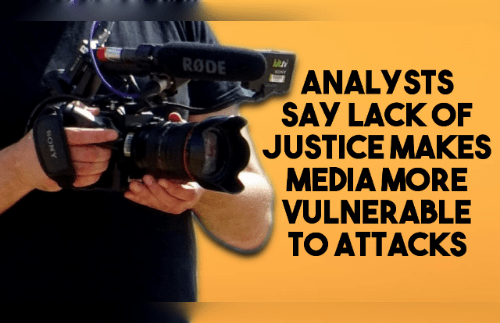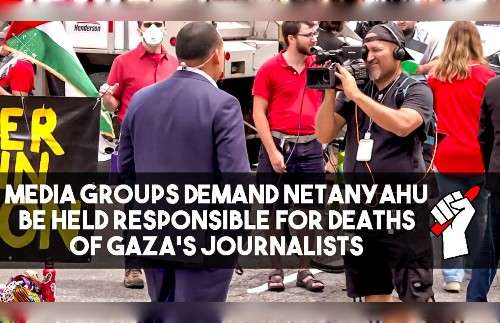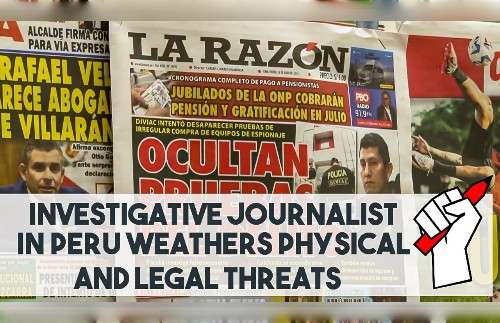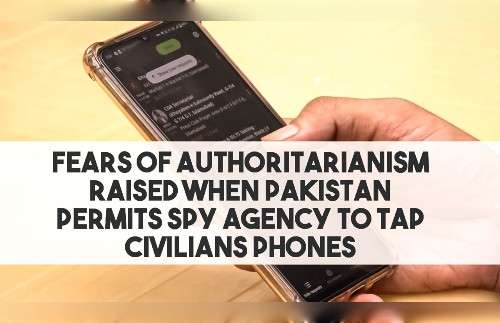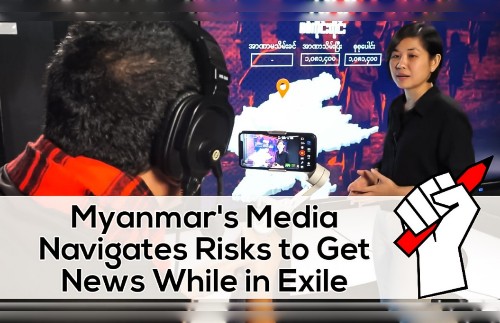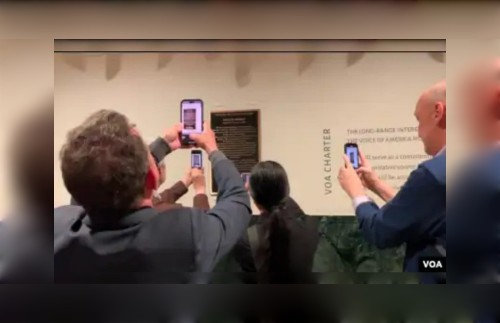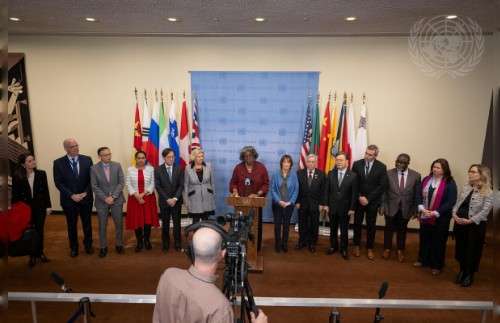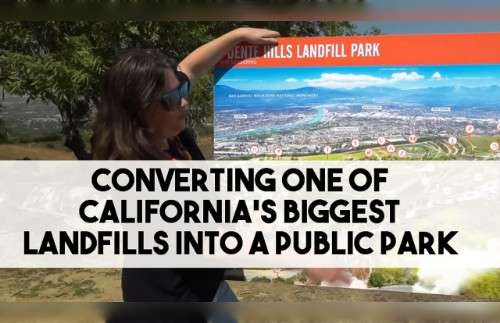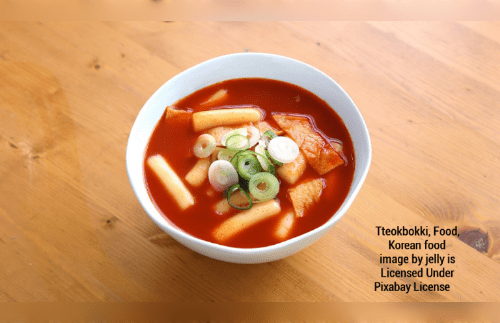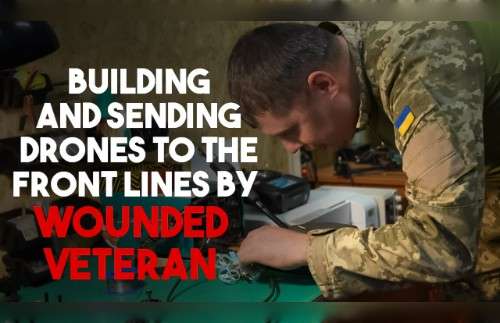Two men evade questions about their identities after following a court reporter to work.
By Gao Feng for RFA Mandarin and RFA Cantonese

Journalists in Hong Kong say they are being followed by unidentified law enforcement personnel, prompting calls for a police investigation from their union amid deteriorating press freedom in the city.
The Hong Kong Journalists’ Association said it had received reports from several news organizations and journalists in the past week that reporters were being “followed or monitored” by unidentified men.
The Hong Kong Free Press online newspaper said its court reporter “was followed from her home to her workplace for over an hour by two men with earpieces” on March 22, adding that the pair had refused to answer questions or reveal their identities when confronted by a staff member at a subway station.
The journalists’ union said it had received similar reporters from a number of different media covering the trial of the now-shuttered independent outlet Stand News, and that court reporters appeared to be the main target for the surveillance.
“Journalists reported the incident to the Journalists’ Association, saying that based on the clothing and behavior of the men in the incident, they suspected that they were plainclothes law enforcement officers,” the union said in a statement on its website dated March 27.
“The Association is very concerned about journalists being followed,” it said. “Threats to the personal safety of journalists, especially court reporters, will make the general public … worry that some people are trying to use coercion to damage reporters’ exercise of their reporting rights.”
“The Association … will not tolerate any intimidation or harassment of journalists and the media,” it said, adding that women journalists are more likely to be targeted for this sort of intimidation.
“No journalist should be harassed because of their gender,” the statement said, and called on the Hong Kong police to investigate the matter, and confirm whether they had carried out any operations targeting journalists in recent days.
“The Journalists’ Association urges the police to take the matter seriously, follow up and investigate, and bring the suspects to justice as soon as possible,” it said.
Plunging rank
Cedric Alviani, East Asia bureau director for the Paris-based press freedom group Reporters Without Borders, said journalists in Hong Kong should be able to work freely and without fear of harassment.
“We are concerned by the fact a Hong Kong Free Press reporter was ostentatiously followed in broad daylight by an unidentified individual,” Alviani was quoted by the Hong Kong Free Press as saying.
Alviani pointed out that Hong Kong, once considered a bastion of press freedom, has plummeted from 80th place in 2021 to 148th place in the 2022 RSF World Press Freedom Index, the index’s sharpest drop of the year.
According to the group’s website, at least 28 journalists and press freedom defenders have been prosecuted in Hong Kong over the past three years under a draconian national security law imposed on the city by the ruling Chinese Communist Party from July 1, 2020.
Thirteen of those are currently behind bars, while at least seven independent media outlets have shut down “because of the repressive climate,” including Jimmy Lai’s Apple Daily and Stand News, it said.
The group also pointed to new rules from the Hong Kong government forcing five local broadcasters to air 30 minutes’ worth of “national security education” propaganda programming per week.

Under the rules, TVB, ViuTV and HOY TV, Commercial Radio and Metro Broadcast, must now air “no less than 30 minutes” of propaganda per week, including content relating to “national education, national identity and National Security Law,” if they want their licenses to be reviewed in a few years’ time, it said.
“In Hong Kong like anywhere else, the purpose of the media is to impart independent information for the benefit of the public, and forcing them to broadcast state propaganda in the name of national security is just unacceptable,” Alviani said. “We call on the Hong Kong government to withdraw this measure, and more generally to restore full press freedom as enshrined in the Basic Law.”
The Hong Kong police later wrote to the Journalists’ Association, criticizing it for “rumor-mongering” and for publishing “unverified and inaccurate reports and comments” that misled the public.
Harassed and shoved
Independent journalist Lam Yin-bong said a reporter with the Chinese-language Ming Pao newspaper had been shoved and verbally abused by police as he filmed the prosecutor in the Stand News case at the Wanchai District Court, and said the incident could be connected to the recent monitoring of court reporters.
“The incident involving the reporter being followed and monitored happened about four days after that scuffle between the [Ming Pao] reporter and police,” Lam said. “All of the reporters who said they were followed and surveilled had all been reporting on the Stand News case at Wanchai District Court.”
He said he didn’t believe the Hong Kong Journalists’ Association was dealing in rumors, but rather raising reasonable concerns with the police.
“Those people had earpieces on, and didn’t respond when asked who they were,” Lam said. “Some journalists also saw them presenting their documents to the court, which made people suspect that they were some kind of police or law enforcement.”
“If the police have discovered that these people aren’t police officers, they should come out and say so,” he said.
Lam said there are now few freedoms left for Hong Kong journalists, who had focused on national security trials and protest-related cases as a relatively safe way to cover the ongoing crackdown on public dissent and political opposition.
“There is huge psychological pressure on journalists right now, with many suspecting that they’re being followed,” he said. “The hardest thing to deal with is that you never know who these people are.”
Hong Kong Free Press founder and editor-in-chief Tom Grundy vowed to pursue those following its journalists through every legal channel open to it.
“If you try this nonsense, HKFP will use every bureaucratic & legal avenue possible to follow-up, relentlessly,” he said via his Twitter account.
“We’ll film it, make police complaints, publish stories, enlist NGOs & our lawyers, & reserve the right not to blur faces. Every single time,” Grundy wrote.
Translated by Luisetta Mudie. Edited by Malcolm Foster.
Copyright © 1998-2020, RFA. Used with the permission of Radio Free Asia, 2025 M St. NW, Suite 300, Washington DC 20036. https://www.rfa.org.





